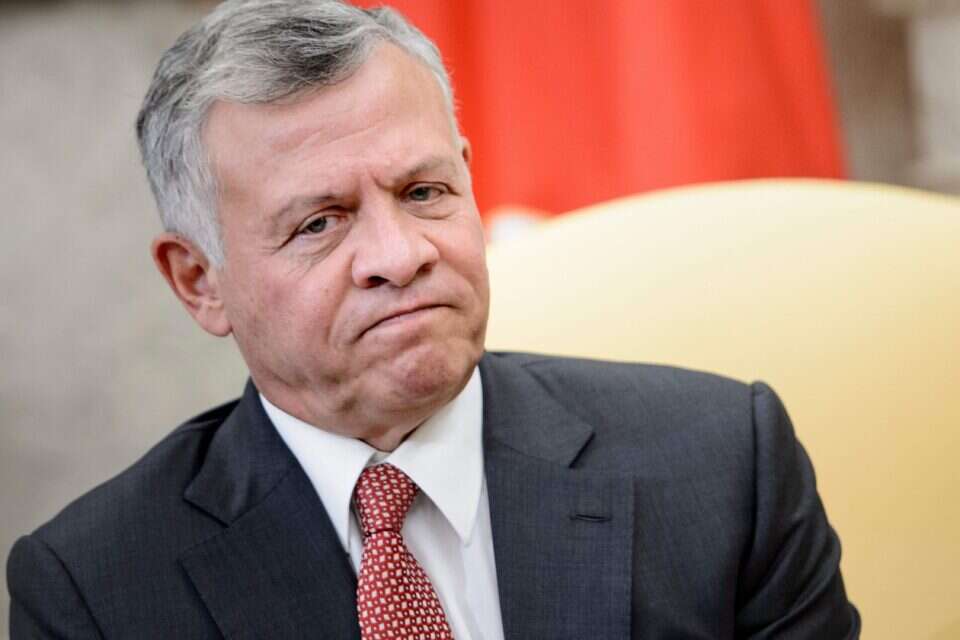King Abdullah (60) remembers the sad medical past of his predecessors.
His father died at the age of 63, after a battle with cancer.
His grandfather, King Talal, also died at the age of 63, after being deposed and exiled, in parallel with the mental illness he was battling.
Health problems also plagued the current King of Jordan, who suffered severe pain a week ago following a herniated disc, and flew to Germany to undergo surgery on his spine.
Although Abdullah is not suffering from a serious illness, he is already preparing his son Hussein for the day when he will seize the throne.
During his father's stay in Germany, the 27-year-old regent took his place, and not for the first time.
The prince leads prayers in mosques, attends conferences, and even accompanied his father on his last visit to Ramallah, where he met with Abu Mazen.
Like his father, Hussein was educated in the West.
He graduated from Georgetown University in Washington, D.C., and successfully completed his studies at the Military Academy in the United Kingdom.
Hussein's mother, Rania, is from a Palestinian family from Kuwait, originally from Tulkarem.
When the day comes, he will become the first "Jordanian-Palestinian king."
The refugee burden
Which kingdom will Abdullah inherit from his son?
Since the wars in Iraq and Syria, the East Bank has been kneeling under the burden of refugees.
According to the United Nations, from 2018 to the end of 2021, only about 41,000 Syrian refugees have returned to their country - only 5% of all Syrian refugees in Jordan.
The kingdom hosts about 760,000 refugees, most of them from Syria and Iraq, and the rest from Yemen, Sudan and other countries.
Moreover, the government estimates that the number reaches 1.3 million Syrian refugees, as many of them are unregistered.
Another headache is related to the Palestinian community.
Some 2.1 million Palestinians are registered as refugees in Jordan, and to date there are ten camps in the kingdom, inhabited by hundreds of thousands.
The camps are one of the main sources of hostility to Israel, which has recently erupted in popular opposition to a water-to-water agreement between the two countries.
In addition, the camps provide fertile ground for the activities of the Muslim Brotherhood.
At the beginning of the month, the movement organized a conference to mark "Earth Day" and the Battle of Karama in the al-Baka camp north of Amman.
"The Jordanian people are a real partner of the Palestinian people in the campaign for its liberation. The armies for the liberation of Palestine will leave Jordan, and as Palestinian and Jordanian blood mingled in the battle of Karama, it will mingle again in the battle leading to the liberation of al-Aqsa," said the Muslim Brotherhood.
Jordanian Prince Hussein, Photo: AFP
Even the family circle is not without threats.
Prince Hamza bin Hussein recently announced that he was relinquishing his title of nobility, after being convinced that the institutions in Jordan were not run in the way outlined by his father, King Hussein.
The remarks came a few months after a letter of apology from Hamza, which was supposed to sign the affair.
The name of Prince Hamza, who lost the title of regent in 2004, was carried by protesters during a protest in 2012.
The demonstrations were fueled, among other things, by opposition from the Jordanian tribes to cuts in fuel subsidies.
The economic crisis in 2018 brought Hamza back to the forefront when he criticized the government and met with tribal leaders.
Reuters reported that his house arrest last year was apparently due to a condolence visit to families of Corona patients who had died of oxygen deprivation at the hospital.
Sources in Jordan said it was "straw that broke the camel's back" as Hamza arrived in the city of Salad a few hours after the king visited the hospital, and a few days before Hussein's expected visit.
This move, according to sources, was perceived as subversive.
But the citizen of Hamza does not lack political opportunities that he can take advantage of in the future.
Just last month, Jordanian security forces arrested dozens of protesters following a demonstration in Amman.
Activists demonstrated in memory of March 24, which is considered the beginning of the "Arab Spring" protest in Jordan.
Although the demonstration was forcibly dispersed, it is doubtful that this will put an end to the protest.
Will he continue on his way?
Abdullah seems to be opting for spot and aggressive treatment of the threats facing him.
He neutralizes his brother and takes care of the imprisonment of his opponents.
The question is whether his son will continue his path in the future, leading to a violent conflict similar to the Syrian civil war, or whether he will decide on government reforms.
Were we wrong?
Fixed!
If you found an error in the article, we'll be happy for you to share it with us

